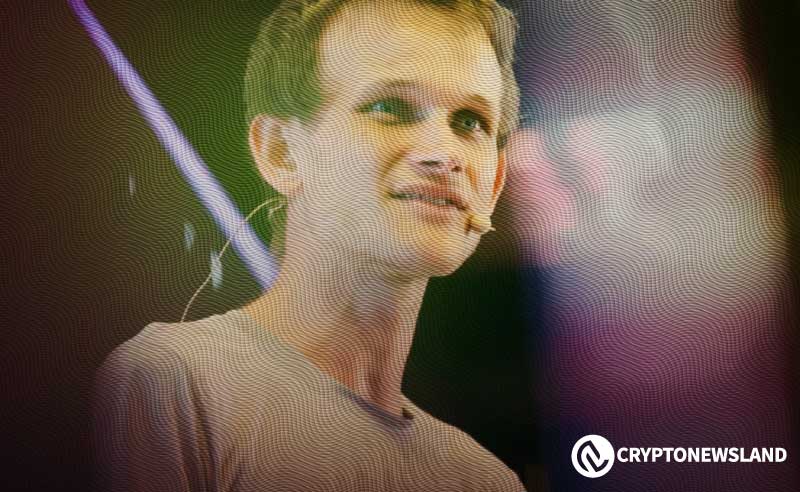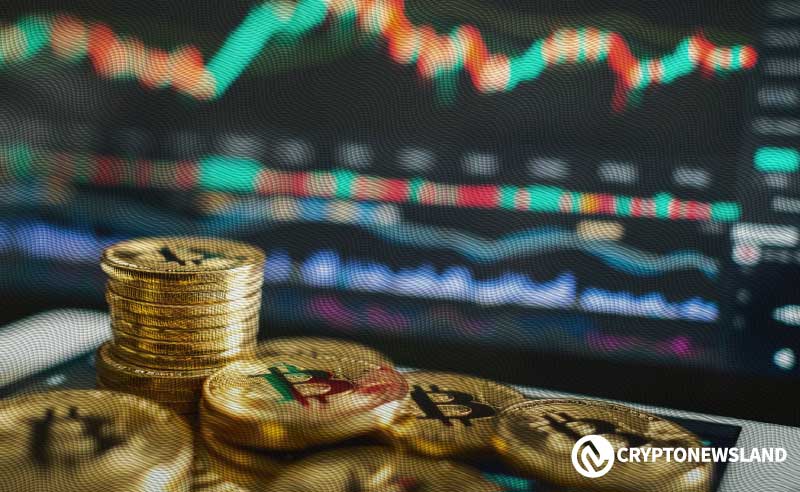- Vitalik Buterin proposes EIP-7706 for Ethereum, targeting a revamped gas model for transaction call data.
- EIP-7706 aims to introduce a third gas category focused on call data, enhancing Ethereum’s transaction efficiency.
- Buterin suggests dynamic models for managing execution, blob, and call data gas fees simultaneously for cost optimization.
Vitalik Buterin has recently brought attention to a contemporary Ethereum Improvement Proposal (EIP) known as 7706. This proposal zeroes in on a revamped gas model tailored for transaction call data within the Ethereum network.
Presently, Ethereum transactions entail dual types of gas fees: the first pertains to transaction execution, encompassing the computational resources needed for the transaction’s processing; the second relates to storage, indicating the expense incurred for storing data within ‘blobs’. However, Buterin’s recent suggestions seek to add a third gas category, primarily targeting call data.
In Ethereum, call data refers to segments that carry data that is sent to a smart contract when a transaction is executed. This means the Ethereum blockchain will allocate a unique fee for the data transferred during a transaction, separate from the cost of contract code execution or data storage.
The new gas model will add transaction types that provide max base fee and priority fee as vectors, providing values for execution gas, lump gas, and call data gas. Currently, base fee adjustments use separate mechanisms for transaction execution costs and data storage in blobs. However, Buterin suggested that with the introduction of the third type of gas fee, the Ethereum network should adopt a common approach to all three types of gas fees.
This move aims to reduce transaction costs associated with data-intensive transactions that are not necessarily computationally intensive. If the proposal is accepted, the Ethereum network will be responsible for setting call data fees independently of other fees.
Furthermore, Buterin suggested controlling the three types of gas, namely execution, blob, and call data. This will result in the use of a system that adjusts costs simultaneously, thereby streamlining the process. Buterin recommends managing all three forms of gas through dynamic models that modify costs simultaneously. If approved, this adjustment would reduce gas fees for transactions involving substantial data transmission.
However, this cost will not include computing intensity. The proposal advocates a separate price adjustment for data transmission, regardless of other associated costs, to reduce gas fees for data-heavy transactions. Buterin stated that the theoretical maximum call data size of a block would be greatly reduced, while basic economic analysis shows that on average, call data would become much cheaper.
Introducing a special gas type for call data represents Ethereum’s move to improve the transaction fee structure in its ecosystem. According to Buretin, the proposal could offer more granular control over transaction fees and optimize network efficiency. Additionally, Ethereum executives Buterin Sam Wilson, Ansgar Dietrichs, and Matt Garnett introduced EIP-7702 to improve account abstraction before this proposal.
The future of Ethereum in the crypto industry appears promising, especially with innovations like Vitalik Buterin’s EIP-7706. This proposal signals Ethereum’s commitment to scalability and efficiency, addressing key issues like transaction costs and data management. As the blockchain landscape continues to evolve, Ethereum’s proactive approach to optimization positions it as a frontrunner in the digital economy, offering users greater control, lower costs, and enhanced functionality.
Read Also
disclaimer read moreCrypto News Land, also abbreviated as "CNL", is an independent media entity - we are not affiliated with any company in the blockchain and cryptocurrency industry. We aim to provide fresh and relevant content that will help build up the crypto space since we believe in its potential to impact the world for the better. All of our news sources are credible and accurate as we know it, although we do not make any warranty as to the validity of their statements as well as their motive behind it. While we make sure to double-check the veracity of information from our sources, we do not make any assurances as to the timeliness and completeness of any information in our website as provided by our sources. Moreover, we disclaim any information on our website as investment or financial advice. We encourage all visitors to do your own research and consult with an expert in the relevant subject before making any investment or trading decision.



